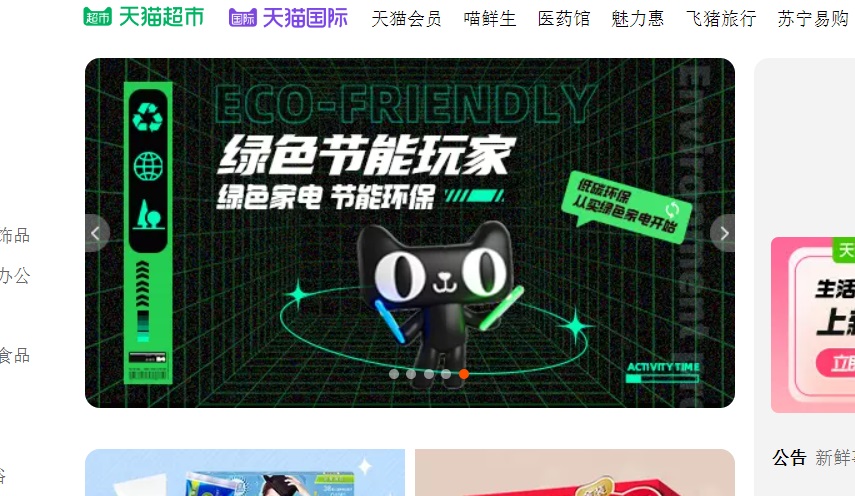it is a trend, China wants more suitanable products. This year, the Chinese governement pushs retails and e-Commerce platforms to boost low carbon products and want to change the consumption.
Need a cost effective TP (Tmall Partner) to sell in China?
We are an Official Tmall Partner e-commerce Agency. Our Services: E-Commerce, Search Engine Optimization, Advertising, Weibo, WeChat, WeChat Store & PR.
A Green Single Da (blackFriday)
The double 11, single day (Black friday) was more green.
More initiatives will be taken this year to create a more sustainable 11.11. Tmall has intensified efforts to promote low carbon products from clothing to cosmetics.
The platform’s product label helps consumers find low-carbon products and assess their impact on the environment.

Tmall also worked with more than 40 brands to promote low-carbon products
Procter & Gamble and Haier are among the 40 brands that offer sustainable shopping bags to customers. Tmall states that one of six recycled PET plastic bottles is used to make a crossover bag.
Alibaba Green
Tmall and Alibaba Cloud are the backbone of Alibaba’s digital technology and intelligence. They have used the cloud unit’s carbon management platform Energy Expert online to model, calculate, and certify the carbon footprints for 40+ brands. This allows them to identify low carbon products and implement informed sustainability practices.
Cainiao : logistic company of Alibaba
Cainiao, along with thousands of merchants will reduce carbon emissions through delivery and packaging. Additionally, it will increase its parcel box recycling efforts at nearly 100,000 Cainiao Post outlets offline.
Alibaba Group’s Alibaba Cloud computing arm boosted its use clean energy and used cloud-native technology for this year’s 11.11 Global Shopping Festival to be its most environmentally-friendly yet.
Alibaba Cloud used more than 32 million kilowatt hours of electricity to power this 11.11 clean energy project. This is a 30% increase in average daily usage compared to last year.
Many of the tools for customer engagement were powered by clean energy and cloud-based technology during 11.11 (also known as Double 11/Single’s Day).
Cheng Li, Alibaba’s Chief Technology Officer,
“Technology must be green, inclusive and open-sourced.” He spoke at the Hangzhou campus of the company last week.
100% clean electricity
Alibaba stated that it is on track for 100% clean electricity to power its global data center by 2030. To support the 11.11 year, it doubled its clean energy consumption at five of its hyper-scale data centres in China. The Heyuan hyperscale data center in Guangdong, Southern China, already uses 100% clean energy.
Hangzhou-based company also made this year’s 11.11 greener. It leveraged its carbon management platform Energie Expert to assist brands in reducing carbon emissions.
Over 40 companies on Alibaba’s business to consumer platform Tmall have used the platform to measure their carbon footprints and find ways to reduce carbon emissions.
More Cloud, Less Energy
Alibaba platforms used its own cloud-native and serverless technologies during 11.11 to cut costs and save computing resources.
Alibaba cut computing costs per resource unit by 8% between April 1st and November 11. Alibaba Cloud’s newly launched cloud-native infrastructure has helped increase the computing, storage and network efficiency of its data centers that support Double 11 sales. source aliza
Taobao Servor
The company has moved the Taobao front page to its serverless infrastructure for the first time. Taobao developers can now run their applications on Taobao’s serverless infrastructure. They are able to access computing resources based on real-time demand and not having to manage servers.
Customers could also place orders, pay and get refunds during peak hours due to the increased scalability.
Alibaba created ApsaraDB for Redis Enhanced Edition, a cloud-based in memory database service that was used to host this year’s event.
This service allows shopping carts using the Taobao or Tmall app expand their loading capacities from 120 to 300 items. The database service supports consumers in organizing their goods into different groups so they can see their shopping list clearly.







